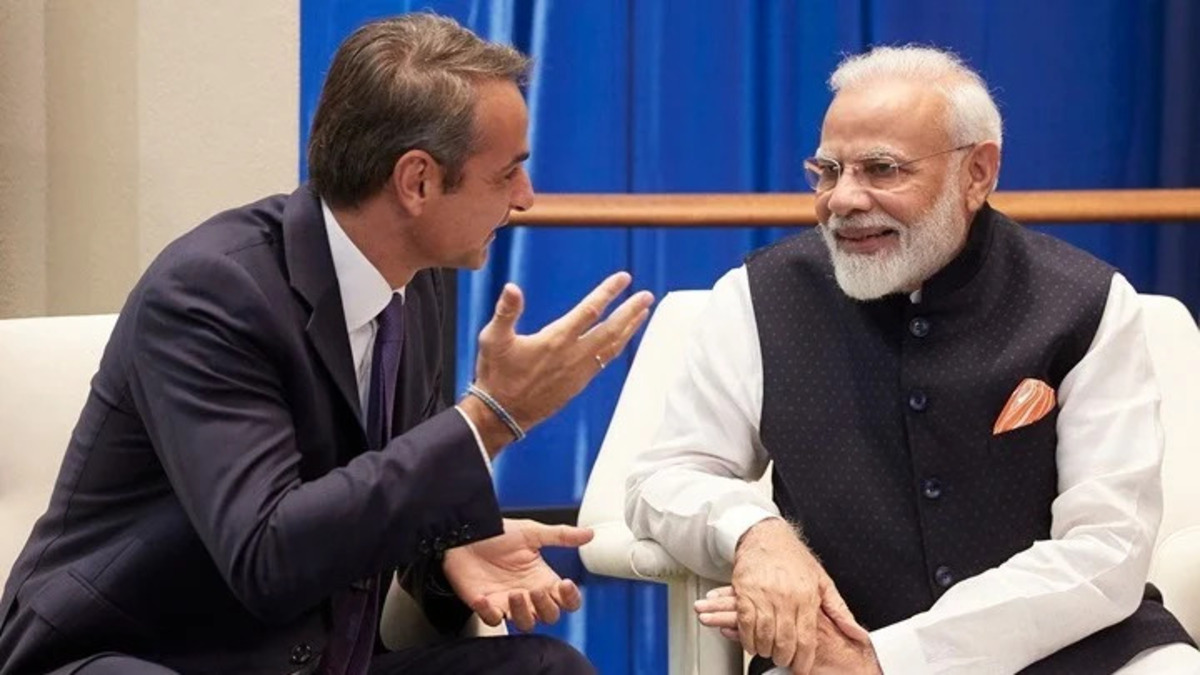Greek Prime Minister Kyriakos Mitsotakis commended India’s electoral system, citing it as a compelling example that disproves any misconceptions about the challenges of implementing democracy on a significant scale. Speaking at the 9th Raisina Dialogue, Mitsotakis lauded India’s democratic process as not only exemplary but also as a model that demonstrates how democracy can foster robust economic growth.
During his address at the conference, the Greek PM highlighted that the elections in India serve as a compelling refutation of the misguided belief that democracy struggles on a large scale. He emphasized that India sets an example for the world, one that deserves celebration, showcasing how democracy can contribute to enhanced economic growth.
The Raisina Dialogue, India’s premier platform for discussions on geopolitics and geoeconomics, has attracted participation from foreign ministers and officials representing various nations. The ongoing ninth edition, held in the national capital, commenced on Wednesday, February 21, and is scheduled to conclude on Friday, February 23.
Mitsotakis’s remarks coincided with India’s preparations for the upcoming 18th Lok Sabha elections, slated to be held in March-April this year. However, amidst the anticipation surrounding the elections, several Indian opposition leaders have raised concerns regarding the current electoral system, particularly regarding Electronic Voting Machines (EVMs) and Voter Verified Paper Audit Trails (VVPATs).
Criticism from opposition leaders such as Congress leader Adhir Ranjan Chowdhury and AAP national convenor Arvind Kejriwal has focused on Prime Minister Modi’s predictions about the BJP’s electoral performance, with suggestions of possible tampering with EVMs. Rashtriya Janata Dal (RJD) Rajya Sabha MP Manoj Jha also questioned the integrity of the electoral process, raising doubts about the functioning of EVMs following Prime Minister Modi’s statements regarding the BJP’s expected seat tally.
The scrutiny intensified following the Supreme Court’s intervention in the Chandigarh Mayor Elections, where the decision to declare BJP candidate Manoj Kumar Sonkar as the winner was overturned. The apex court, led by Chief Justice of India DY Chandrachud and Justices JB Pardiwala and Manoj Misra, annulled the election result after finding evidence of deliberate tampering by the Returning Officer, who invalidated ballots cast in favor of an opposing candidate.
The incident has reignited debates surrounding the transparency and reliability of India’s electoral process, prompting calls for enhanced safeguards to preserve the integrity of democratic elections. While India’s electoral system continues to garner praise from international leaders like Mitsotakis, domestic concerns persist regarding the need for strong mechanisms to ensure fair and transparent elections.


